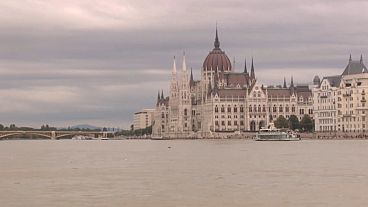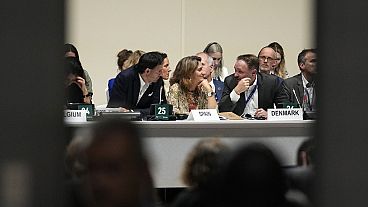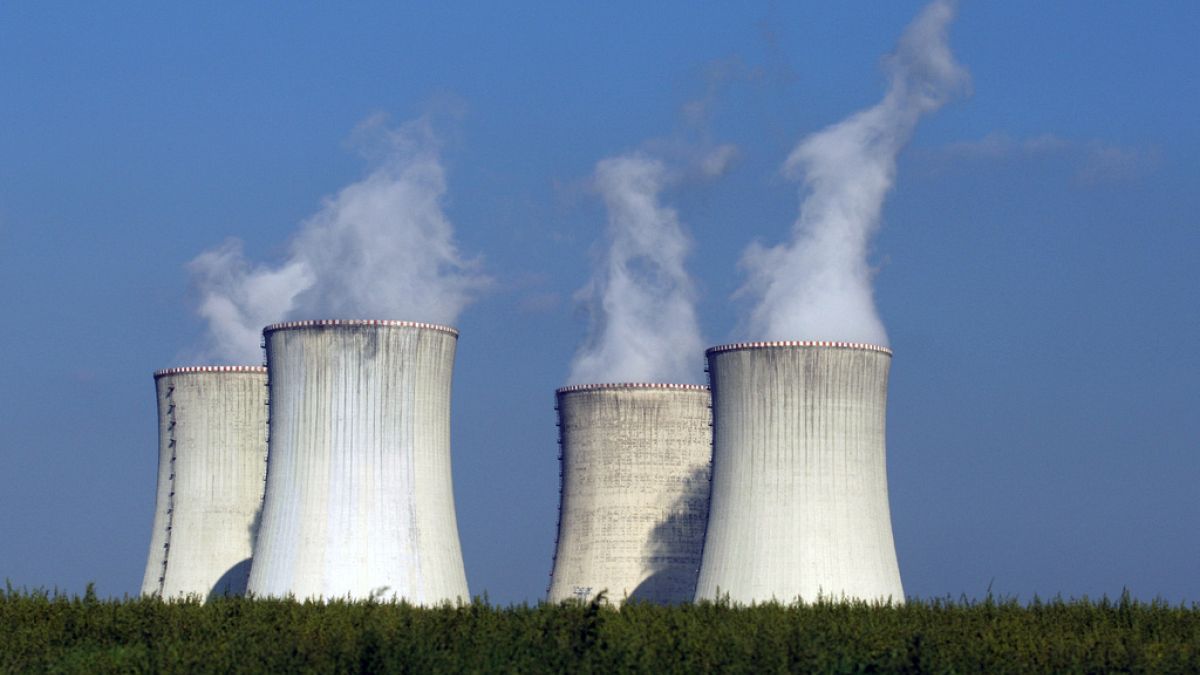The government has appointed teams to draft specific laws to address a renewed Italian interest in nuclear energy, as well as parliamentary committees that will examine the possibilities.
Italy may be about to give up its title as the only G7 member without any nuclear power plants, as the quest for nuclear independence — partly driven by Russia's invasion of Ukraine — and the need to reduce reliance on fossil fuels have prompted the current government to rethink its approach to nuclear energy.
Italy's environment minister, Gilberto Pichetto Fratin, announced plans to introduce new regulations by the end of the year to allow the use of nuclear technologies in the country, aiming to have a new decree in place by 2025.
The measures would reverse Italy's nuclear energy phase-out, which began after a referendum in 1987, followed by a similar ban in 2011.
In line with the renewed interest in nuclear power, a team has been appointed to draft specific laws to address the issue, in addition to two parliamentary committees that are conducting an inquiry to examine the issue.
Riccardo Zucconi, an Italian MP belonging to Prime Minister Giorgia Meloni's right-wing populist Brothers of Italy party, has been closely following the matter to get to grips with the government's position and understand what's at stake.
"The inquiry is still ongoing," Zucconi told Euronews. "There hasn't been a clear or decisive indication on the matter yet. The creation of a new platform by the energy minister is significant as it maps the nuclear facilities that still exist both in Italy and across Europe."
According to Zucconi, global demand is expected to double in the next 10 years, and renewable energies alone are not enough.
"Alternative options, including a new generation of smaller plants, are emerging and should be seriously considered," he said, noting that Italy has expertise in the sector.
According to the government's energy and climate plan (PNIEC) the use of new types of plants could meet up to 11% of national energy demand by 2050.
However, given the past referendums voting against traditional nuclear plants, Zucconi said that it's important that Italy look to evolve on the matter.
"We are living in a democracy, and citizens must be prepared and informed,"he said. "We need to hear their opinions as well."
He added that the old large-scale nuclear plants, which often turned the public off nuclear power, will slowly disappear.
The question remains about how much nuclear power can contribute to the green transition and whether it can work alongside renewables.
An independent study by energy companies Edison and Ansaldo Nucleare and think-tank The House of Ambrosetti (TEHA), published during the recent Cernobbio international economic forum, suggests that nuclear and renewable energy can be combined and that their implementation will be a boon for the economy.
Lorenzo Tavazzi, a senior partner with TEHA who participated in the study, told Euronews that the overall economic impact on the supply chain and related activities amounts to €50 billion, creating a total of 117,000 new jobs.
"Nuclear energy and renewables are not opposed to each other, they complement each other," he said. "Nuclear power can generate a continuous supply of energy, whereas renewables are intermittent. Integrating the two can accelerate the use of clean technologies and enhance decarbonisation."
Lengthy construction times, which can reach up to 10 years, are an issue even though experts say that consumers pay less in the end.
"The issue of timing is significant because it impacts production costs. Meeting deadlines is crucial," Tavazzi said, adding that the development of new technologies in the sector should be viewed as part of a Europe-wide project, not just something happening in Italy.
However, some environmental organisations oppose the use of nuclear power for decarbonisation.
The Italian think tank Ecco, which focuses on climate change and energy transition, believes nuclear technologies are too expensive and take too long to implement.
"More and more hours of the day, year will see renewables covering the entire demand for power," Michele Governatori, gas and power lead at think tank Ecco, told Euronews. "What we need instead are flexible sources that can be switched on and off to complement the availability of renewables."
"But nuclear generation is inflexible. Renewables are booming because they are ready and affordable," he said. "To complement them, we need flexible carbon-neutral backup generation, a lot of storage, and demand response — not an expensive, inflexible, and tragically long-to-build technology like current nuclear energy."
Meanwhile, Italian public opinion remains deeply divided over the issue, as is the case across Europe. With only a quarter of the EU's electricity coming from nuclear power, opinions on its use vary widely across the continent.












